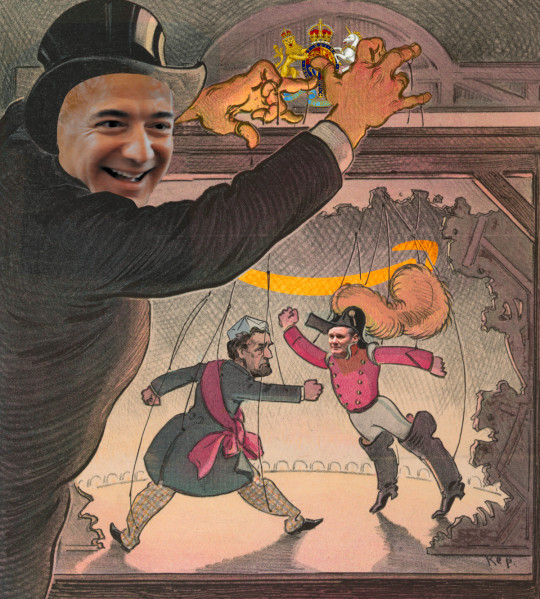#digital industry
Explore tagged Tumblr posts
Text


whats wrong with my dog bruh 😂😭
#art#illustration#colored pencil#digitally edited quite a bit tho#black paper#horror#surrealism#unreality#this is what realistic quad fursuits make me feel like btw#no hate to ppl who make/wear/like them and theyre v impressive it just freaks me out#i think those kinds of fursuiters need to work in the film industry making practical effects for horror movies#like making a skinwalker or something similar#it looks like a dog at first glance but the way it moves isnt quite right and u realize its someone/something just mimicing a dog#animal uncanny valley to me
4K notes
·
View notes
Text


#s0larize#my pic#digicam#digital camera#night photography#factory#industrial aesthetic#grunge#grunge aesthetic#weirdcore#nostalgiacore#grungecore#midwest gothic#ontario#small town gothic#fog aesthetic#1k
2K notes
·
View notes
Text

Southwest Oregon, a favorite old house of mine.
#photography#southern gothic#americana#pacific northwest#rural gothic#rural decay#digital camera#fog#digital photography#western#abandoned homes#abandoned house#abandoned buildings#abandoned#digicam#nostalgiacore#nostalgia#dark naturalism#decay#decay of angels#industrial decay#haunted#haunted house
2K notes
·
View notes
Text

7K notes
·
View notes
Photo

As digital platforms become more prevalent in our daily lives, it's essential to consider the impact of UI/UX design on user behavior.
A recent study by the Advertising Standards Council of India (ASCI) sheds light on the dark side of UI/UX, revealing how it can influence users to make impulsive and potentially harmful decisions.
The study highlights the importance of ethical design practices and the need for greater transparency in the digital industry. As users, we must remain aware of the design elements that are influencing our behavior and make informed decisions.
The key takeaways from this study can help us navigate the digital landscape with greater mindfulness and responsibility.
https://www.algoworks.com/blog/asci-study-on-ui-ux-trends/
1 note
·
View note
Text
Welcome to W3B3&M3, the podcast where we dive into the latest tech trends and digital innovations with your hosts Eugene Capon and Red Romina. Join us as we explore the cutting edge of AI, NFTs, the Metaverse, VR, influencer marketing, and social media.
With Eugene's expertise in Web3 and Red's experience in influencer marketing, we offer unique insights and perspectives on these fast-evolving industries. We bring you the latest news and trends, interview experts and industry leaders, and share our own experiences in the tech world.
Whether you're a tech enthusiast, entrepreneur, or marketer, our show will provide you with valuable insights and actionable strategies to stay ahead in the game. So tune in to W3B3&M3 and let's explore the exciting world of digital innovation together.
Eugene Capon HighTechInfleuncer.com Twitter.com/capondesign Youtube.com/eugenecapon tiktok.com/@eugenecapon
Red Romina RedRomina.com Twitter.com/redromina Youtube.com/redromina tiktok.com/@redromina
Keywords: AI, NFTs, Metaverse, VR, influencer marketing, social media, tech trends, digital innovations, insights, strategies.
0 notes
Text


No workplace is complete without a mysterious sassy child to tell you off
#severance#severance season 2#severance fanart#severance fan art#ms. huang#ms. huang severance#art#drawing#digital art#severance spoilers#lumon#lumon industries#artists on tumblr#ms. huang fanart#ms. huang fan art#severance season 2 fanart
495 notes
·
View notes
Text


#digicam#factory#industrial aesthetic#angels#night photography#my pics#digital photography#industrial core
457 notes
·
View notes
Text


oh thank god
#art from a while back#i played hk first and deepnest was like. the most uncomfortable ive ever been playing the game#mainly because its just so DARK#as for rw... when i got to shaded...... what the actual Hell#i eventually got used to just dying in the dark and exploring the first parts of the region but like. Why is it pitch black#i didnt even realize there was a path to the scav merchant at the first room..... i got to memory crypts before finding it in my next run#hollow knight#rain world#hk ghost#rw slugcat#rw survivor#artatat#?!?@?@?@?@ the alt text got removed for a sec Sorry about that im not sure why or how that happened#also im completely aware deepnest without a lantern is much darker but atleast it isnt pitch black. You know#i also wanna add on the fact i entered deepnest after the mantis lords and thought. “what kind of winning gift is this!?!?!?”#and felt like cornifer for the first couple of minutes LOL#but i had nowhere to go so womp womp :P#to clarify: i dont hate shaded its actually my top route to go from industrial to shoreline#but i hate deepnest with all my heart❤️ godbless#reading the rbs here is so fun.... so true guys#digital art
2K notes
·
View notes
Text
Keir Starmer appoints Jeff Bezos as his “first buddy”

Picks and Shovels is a new, standalone technothriller starring Marty Hench, my two-fisted, hard-fighting, tech-scam-busting forensic accountant. You can pre-order it on my latest Kickstarter, which features a brilliant audiobook read by Wil Wheaton.

Turns out Donald Trump isn't the only world leader with a tech billionaire "first buddy" who gets to serve as an unaccountable, self-interested de facto business regulator. UK PM Keir Starmer has just handed the keys to the British economy over to Jeff Bezos.
Oh, not literally. But here's what's happened: the UK's Competitions and Markets Authority, an organisation charged with investigating and punishing tech monopolists (like Amazon) has just been turned over to Doug Gurr, the guy who used to run Amazon UK.
This is – incredibly – even worse than it sounds. Marcus Bokkerink, the outgoing head of the CMA, was amazing, and he had charge over the CMA's Digital Markets Unit, the largest, best-staffed technical body of any competition regulator, anywhere in the world. The DMU uses its investigatory powers to dig deep into complex monopolistic businesses like Amazon, and just last year, the DMU was given new enforcement powers that would let it custom-craft regulations to address tech monopolization (again, like Amazon's).
But it's even worse. The CMA and DMU are the headwaters of a global system of super-effective Big Tech regulation. The CMA's deeply investigated reports on tech monopolists are used as the basis for EU regulations and enforcement actions, and these actions are then re-run by other world governments, like South Korea and Japan:
https://pluralistic.net/2024/04/10/an-injury-to-one/#is-an-injury-to-all
The CMA is the global convener and ringleader in tech antitrust, in other words. Smaller and/or poorer countries that lack the resources to investigate and build a case against US Big Tech companies have been able to copy-paste the work of the CMA and hold these companies to account. The CMA invites (or used to invite) all of these competition regulators to its HQ in Canary Wharf for conferences where they plan global strategy against these monopolists:
https://www.eventbrite.co.uk/e/cma-data-technology-and-analytics-conference-2022-registration-308678625077
Firing the guy who is making all this happening and replacing him with Amazon's UK boss is a breathtaking display of regulatory capture by Starmer, his business secretary Jonathan Reynolds, and his exchequer, Rachel Reeves.
But it gets even worse, because Amazon isn't just any tech monopolist. Amazon is a many-tentacled kraken built around an e-commerce empire. Antitrust regulators elsewhere have laid bare how Amazon uses that retail monopoly to take control over whole economies, while raising prices and crushing small businesses.
To understand Amazon's market power, first you have to understand "monopsonies" – markets dominated by buyers (monopolies are markets dominated by sellers – Amazon is both a monopolist and a monopsonist). Monopsonies are far more dangerous than monopolies, because they are easier to establish and easier to defend against competitors. Say a single retailer accounts for 30% of your sales: there isn't a business in the world that can survive an overnight 30% drop in sales, so that 30% market share might as well be 100%. Once your order is big enough that canceling it would bankrupt your supplier, you have near-total control over that supplier.
Amazon boasts about this. They call it "the flywheel": Amazon locks in shoppers (by getting them to prepay for a year's worth of shipping in advance, via Prime). The fact that a business can't sell to a large proportion of households if it's not on Amazon gives Amazon near-total power over that business. Amazon uses that power to demand discounts and charge junk fees to the businesses that rely on it. This allows it to lower prices, which brings in more customers, which means that even more businesses have to do business with Amazon to stay afloat:
https://vimeo.com/739486256/00a0a7379a
That's Amazon's version, anyway. In reality, it's a lot scuzzier. Amazon doesn't just demand deep discounts from its suppliers – it demand unsustainable discounts from them. For example, Amazon targeted small publishers with a program called the "Gazelle Project." Jeff Bezos told his negotiators to bring down these publishers "the way a cheetah would pursue a sickly gazelle":
https://archive.nytimes.com/bits.blogs.nytimes.com/2013/10/22/a-new-book-portrays-amazon-as-bully/
The idea was to get a bunch of cheap books for the Kindle to help it achieve critical mass, at the expense of driving these publishers out of business. They were a kind of disposable rocket stage for Amazon.
Deep discounts aren't the only way that Amazon feeds off its suppliers: it also lards junk-fee atop junk-fee. For every pound Amazon makes from its customers, it rakes in 45-51p in fees:
https://pluralistic.net/2023/11/29/aethelred-the-unready/#not-one-penny-for-tribute
Now, just like there's no business that can survive losing 30% of its sales overnight, there's also no business that can afford to hand 45-51% of its gross margin to a retailer. For businesses to survive at all on Amazon, they have to jack their prices up – way up. However, Amazon has an anticompetitive deal called "most favoured nation status" that forces suppliers to sell their goods on Amazon at the same price as they sell them elsewhere (even from their own stores). So when companies raise their prices in order to pay ransom to Amazon, they have to raise their prices everywhere. Far from being a force for low prices, Amazon makes prices go up everywhere, from the big Tesco's to the corner shop:
https://pluralistic.net/2023/04/25/greedflation/#commissar-bezos
Amazon makes so much money off of this scam that it doesn't have to pay anything to ship its own goods – the profits from overcharging merchants for "fulfillment by Amazon" pay for all the shipping, on everything Amazon sells:
https://cdn.ilsr.org/wp-content/uploads/2023/03/AmazonMonopolyTollbooth-2023.pdf
Amazon competes with its own sellers, but unlike those sellers, it doesn't have to pay a 45-51% rake – and it can make its competitor-customers cover the full cost of its own shipping! On top of that, Amazon maintains the pretense that its headquarters are in Luxembourg, the tax- and crime-haven, and pays a fraction of the taxes that British businesses pay to HMRC (and that's not counting the 45-51% tax they pay to Jeff Bezos's monoposony).
That's not the only way that Amazon unfairly competes with British businesses, though: Amazon uses its position as a middleman between buyers and sellers to identify the most successful products sold by its own customers. Then it copies those products and sells them below the original inventor's costs (because it gets free shipping, pays no tax, and doesn't have to pay its own junk fees), and drives those businesses into the ground. Even Jeff "Project Gazelle" Bezos seems to understand that this is a bad look, which is why he perjured himself to the American Congress when he was questioned under oath about it:
https://www.bbc.com/news/business-58961836
Amazon then places its knockoff products above the original goods on its search results page. Amazon makes $38b selling off placement on these search pages, and the top results for an Amazon search aren't the best matches for your query – they're the ones that pay the most. On average, Amazon's top result for a search is 29% more expensive than the best match on the site. On average, the top row of results is 25% more expensive than the best match on the site. On average, Amazon buries the best result for your search 17 places down the results page:
https://pluralistic.net/2023/11/03/subprime-attention-rent-crisis/#euthanize-rentiers
Amazon, in other words, acts like the business regulator for the economies it dominates. It decides what can be sold, and at what prices. It decides whose products come up when you search, and thus which businesses deserve to live and which ones deserve to die. An economy dominated by Amazon isn't a market economy – it's a planned economy, run by Party Secretary Bezos for the benefit of Amazon's shareholders.
Now, there is a role for a business regulator, because some businesses really don't deserve to live (because they sell harmful products, engage in deceptive practices, etc). The UK has a regulator that's in charge of this stuff: the Competition and Markets Authority, which is now going to be run by Jeff Bezos's hand-picked UK Amazon boss. That means that Amazon is now both the official and the unofficial central planner of the UK economy, with a free hand to raise prices, lower quality, and destroy British businesses, while hiding its profits in Luxemourg and starving the exchequer of taxes.
The "first buddy" role that Keir Starmer just handed over to Jeff Bezos is, in every way, more generous than the first buddy deal Trump gave Elon Musk.
Starmer's government claims they're doing this for "growth" but Amazon isn't a force for growth, it's force for extraction. It is a notorious underpayer of its labour force, a notorious tax-cheat, and a world-beating destroyer of local economies, local jobs, and local tax bases. Contrary to Amazon's own self-mythologizing, it doesn't deliver lower prices – it raises prices throughout the economy. It doesn't improve quality – this is a company whose algorithmic recommendation system failed to recognize that an "energy drink" was actually its own drivers' bottled piss, which it then promoted until it was the best-selling energy drink on the platform:
https://pluralistic.net/2023/10/20/release-energy/#the-bitterest-lemon
There's a reason that the UK, the EU, Japan and South Korea found it so easy to collaborate on antitrust cases against American companies: these are all countries whose competition law was rewritten by American technocrats during the Marshall Plan, modeled on the US's own laws. The bedrock of US competition law is 1890's Sherman Act, whose author, Senator John Sherman, declared that:
If we will not endure a King as a political power we should not endure a King over the production, transportation, and sale of the necessaries of life. If we would not submit to an emperor we should not submit to an autocrat of trade with power to prevent competition and to fix the price of any commodity.
https://pluralistic.net/2022/02/20/we-should-not-endure-a-king/
Jeff Bezos is the autocrat of trade that John Sherman warned us about, 135 years ago. And Keir Starmer just abdicated in his favour.

Check out my Kickstarter to pre-order copies of my next novel, Picks and Shovels!

If you'd like an essay-formatted version of this post to read or share, here's a link to it on pluralistic.net, my surveillance-free, ad-free, tracker-free blog:
https://pluralistic.net/2025/01/22/autocrats-of-trade/#dingo-babysitter

Image: UK Parliament/Maria Unger (modified) https://commons.wikimedia.org/wiki/File:Keir_Starmer_2024.jpg
CC BY 3.0 https://creativecommons.org/licenses/by/3.0/deed.en
--
Steve Jurvetson (modified) https://commons.wikimedia.org/wiki/File:Jeff_Bezos%27_iconic_laugh.jpg
CC BY 2.0 https://creativecommons.org/licenses/by/2.0/deed.en
#pluralistic#cma#competition and markets authority#dmu#digital markets unit#guillotine watch#silicon roundabout#Marcus Bokkerink#doug gurr#industrial policy henhouse foxes#dingo babysitters#ukpoli#labour#competition#antitrust#trustbusting#marshall plan#Jonathan Reynolds#regulatory capture#keir starmer
316 notes
·
View notes
Text
I think 90% of my gripes with how modern anime looks comes down to flat color design/palettes.
Non-cohesive, washed-out color palettes can destroy lineart quality. I see this all the time when comparing an anime's lineart/layout to its colored/post-processed final product and it's heartbreaking. Compare this pre-color vs. final frame from Dungeon Meshi's OP.


So much sharpness and detail and weight gets washed out and flattened by 'meh' color design. I LOVE the flow and thickness and shadows in the fabrics on the left. The white against pastel really brings it out. Check out all the detail in their hair, the highlights in Rin's, the different hues to denote hair color, the blue tint in the clothes' shadows, and how all of that just gets... lost. It works, but it's not particularly good and does a disservice to the line-artist.
I'm using Dungeon Meshi as an example not because it's bad, I'm just especially disappointed because this is Studio Trigger we're talking about. The character animation is fantastic, but the color design is usually much more exciting. We're not seeing Trigger at their full potential, so I'm focusing on them.
Here's a very quick and messy color correct. Not meant to be taken seriously, just to provide comparison to see why colors can feel "washed out." Top is edit, bottom is original.
You can really see how desaturated and "white fluorescent lighting" the original color palettes are.
[Remember: the easiest way to make your colors more lively is to choose a warm or cool tint. From there, you can play around with bringing out complementary colors for a cohesive palette (I warmed Marcille's skintone and hair but made sure to bring out her deep blue clothes). Avoid using too many blend mode layers; hand-picking colors will really help you build your innate color sense and find a color style. Try using saturated colors in unexpected places! If you're coloring a night scene, try using deep blues or greens or magentas. You see these deep colors used all the time in older anime because they couldn't rely on a lightness scale to make colors darker, they had to use darker paints with specific hues. Don't overthink it, simpler is better!]
#not art#dungeon meshi#rant#i'm someone who can get obsessive over colors in my own art#will stare at the screen adjusting hues/saturation for hours#luckily i've gotten faster at color picking#but yeah modern anime's color design is saddening to me. the general trend leans towards white/grey desaturated palettes#simply because they're easier to pick digitally#this is not the colorists fault mind you. the anime industry's problems are also labor problems. artists are severely underpaid#and overworked. colorists literally aren't paid enough to do their best#there isn't a “creative drought” in the anime industry. this trend is widespread across studios purely BECAUSE it's not up to individuals#until work conditions improve anime will unfortunately continue to miss its fullest potential visually#don't even GET ME STARTED ON THE USE OF POST-PROCESSING FILTERS AND LIGHTING IN ANIME THOUGH#SOMEONE HOLD ME BACK. I HATE LENS FLARES I HATE GRADIENT SHADING I HATE CHROMATIC ABBERATION AND BLUR
2K notes
·
View notes
Text


"Industrial maids" drawing series - part 2
671 notes
·
View notes
Text



Mortal Coil
470 notes
·
View notes
Text






The impressive industrial sci-fi creations of Ace Carman - https://www.this-is-cool.co.uk/the-impressive-industrial-sci-fi-creations-of-ace-carman/
#Ace Carman#this-is-cool#scififantasyhorror#digital art#sci-fi art#concept art#science fiction art#concept artist#sci-fi artist#digital artist#Industrial Sci-Fi Art#Sci-Fi Environmental Design#3d Art
391 notes
·
View notes
